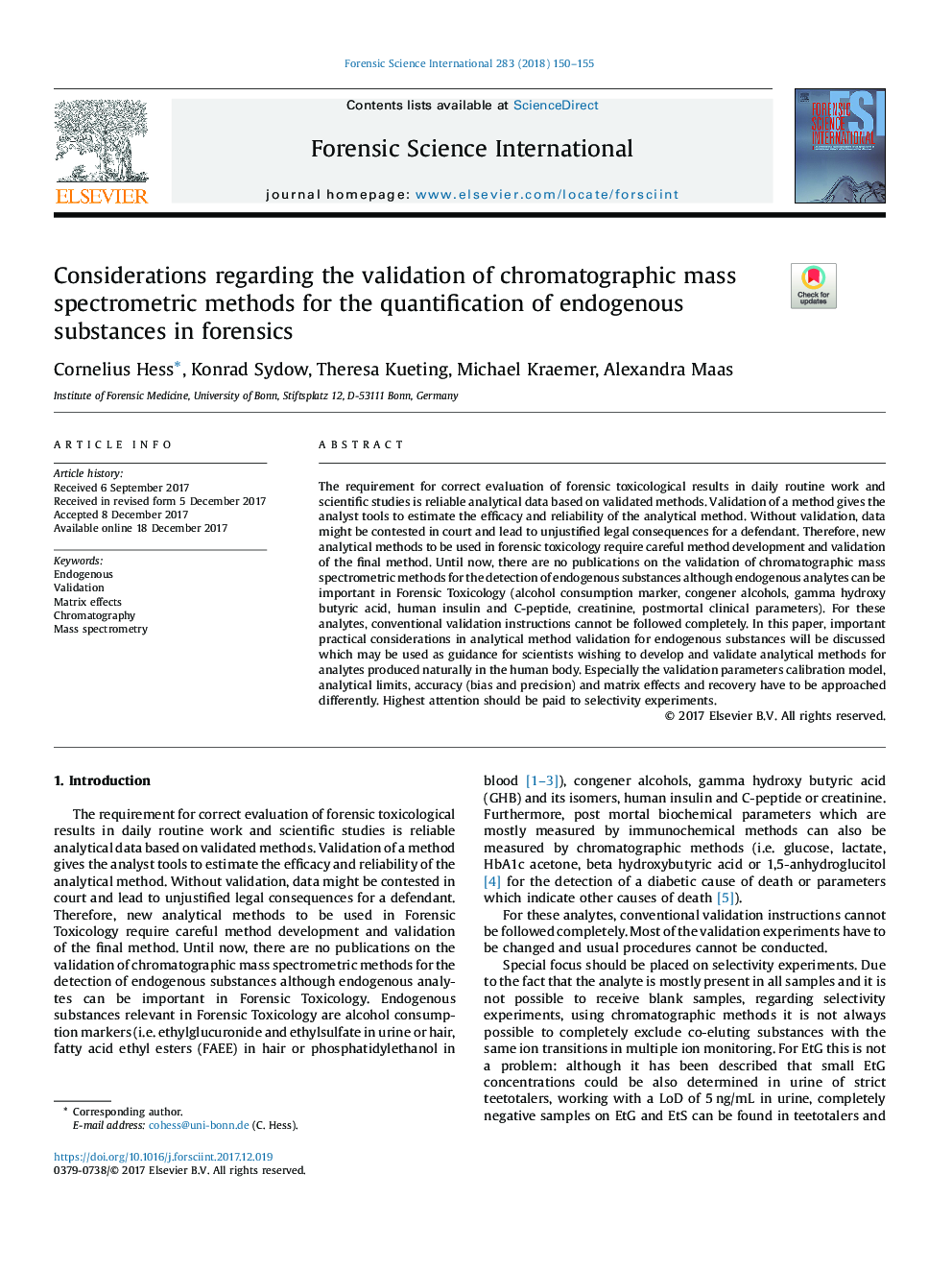| Article ID | Journal | Published Year | Pages | File Type |
|---|---|---|---|---|
| 6551314 | Forensic Science International | 2018 | 6 Pages |
Abstract
The requirement for correct evaluation of forensic toxicological results in daily routine work and scientific studies is reliable analytical data based on validated methods. Validation of a method gives the analyst tools to estimate the efficacy and reliability of the analytical method. Without validation, data might be contested in court and lead to unjustified legal consequences for a defendant. Therefore, new analytical methods to be used in forensic toxicology require careful method development and validation of the final method. Until now, there are no publications on the validation of chromatographic mass spectrometric methods for the detection of endogenous substances although endogenous analytes can be important in Forensic Toxicology (alcohol consumption marker, congener alcohols, gamma hydroxy butyric acid, human insulin and C-peptide, creatinine, postmortal clinical parameters). For these analytes, conventional validation instructions cannot be followed completely. In this paper, important practical considerations in analytical method validation for endogenous substances will be discussed which may be used as guidance for scientists wishing to develop and validate analytical methods for analytes produced naturally in the human body. Especially the validation parameters calibration model, analytical limits, accuracy (bias and precision) and matrix effects and recovery have to be approached differently. Highest attention should be paid to selectivity experiments.
Related Topics
Physical Sciences and Engineering
Chemistry
Analytical Chemistry
Authors
Cornelius Hess, Konrad Sydow, Theresa Kueting, Michael Kraemer, Alexandra Maas,
